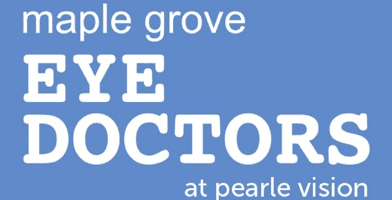https://maplegroveeye.vision/when-should-adults-have-a-baseline-eye-exam/
When Should Adults Have a Baseline Eye Exam? A Baseline Exam Is Key to Eye Health!
There seem to be clear guidelines when it comes to scheduling your first mammogram or colonoscopy. Yet there is still quite an uncertainty about when one should start getting their baseline eye exam.
But What Is A Baseline Eye Exam In The First Place?
When someone talks about eye health, we are primarily reminded of correcting poor vision. Focusing only on aspects like far or nearsightedness leads us to believe that just a pair of prescription glasses would work fine. But vision care goes much beyond that!
You could have underlying eye problems. You could be seeing fine, but your vision may be deteriorating. Often many conditions have no overt symptoms until things worsen, and you’re left with options like a surgical intervention.
A baseline eye exam allows an eye practitioner to determine the overall health of your eyes. It is a comprehensive eye exam that can identify the warning signs of serious conditions such as glaucoma. These kinds of examinations are more suitable for middle-aged adults, those over 40, and recognize vision changes.
Even if you are below 40, an eye exam is a good idea.
Baseline Eye Exams in Your 20s and 30s
If you are an adult and eye care wasn’t part of your healthcare as a child, schedule your appointment right away.
Even if you believe your eyes are healthy and your vision is good, you should have a complete comprehensive exam with dilation by your eye doctor once in your 20s and twice in your 30s.
No signs or risk factors do not translate to good health. A baseline eye exam can detect what you aren’t able to!
How do you know if your vision is good or optimal?
By having an eye exam and we recommend that children have their first eye exam by age 4.
Of course, there are some exceptions, and you’d need to IMMEDIATELY SEE YOUR DOCTOR:
- If you have an infection such as pink eye, an injury to an eye, or eye pain, or if you notice sudden floaters and flashes or patterns of light, schedule an eye exam right away!
- If you wear contact lenses, see your eye doctor every year.
- If you have diabetes or have a family history of eye disease, talk with your eye doctor about how often your eyes should be examined.
Don’t wait until 40 for an eye exam and when you stop being able to see fine print! Your doctor prefers a baseline to work from before presbyopia sets in!
Dr. Stephanie Marioneaux, a clinical correspondent for the AAO, said in a statement, “Many eye diseases progress without any warning sings.” She adds, “Gradual changes in vision can affect your ability to function independently and have confidence in your abilities. One of the hardest adjustments a person can make is adapting to life with permanent vision loss. That is why nothing replaces a comprehensive baseline eye exam.”
See an eye doctor now if you have an eye disease or risk factors such as:
- Diabetes
- High blood pressure
- Family history of eye disease
Your doctor can set up your follow-up routine based on the initial findings. Since your risk for eye disease increases as you get older, it is crucial to follow the schedule your eye doctor gives you.

Eye Exams After 40
Many serious problems can impact your vision after turning 40. Establishing your baseline eye health gives your doctor the right information to compare your future visits with and keep a record of your issues, if any.
Open-angle glaucoma is more prominent in people over 40. So, routine exams can help you prevent irreversible damage to your eyes. You can also keep your prescription up-to-date.
During your dilated eye exam, your doctor can also detect signs of:
- Hypertension
- Autoimmune conditions
- Certain types of cancers
- Sun damage and eye strain
- Ocular allergies
Neglect your eye exam because you’re busy, and you could face serious eye problems impacting your daily life.

⠀
Seniors and Eye Exams
If you are 65 or older, make sure you have your eyes checked every year. Eye exams are even more crucial as you reach your senior years.
When you go in for your appointment, your eye doctor will check for signs of age-related eye diseases such as:
- Cataracts
- Diabetic retinopathy
- Age-related macular degeneration
- Glaucoma
Vision problems can develop with no apparent discomfort until they are pretty advanced. Regular check-ups work wonders for older eyes.
Remember, always follow the schedule your eye doctor recommends for future eye exams!




